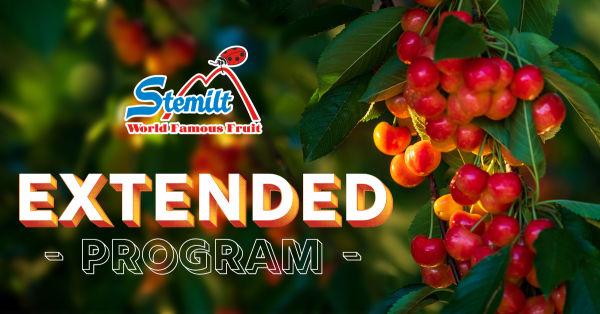
California Avocado Supply Chain Tour Highlights
The California Avocado Commission (CAC) recently hosted an invitational guided tour which highlighted different aspects of the avocado industry.
Hosted by CAC's Vice President of Marketing, Jan DeLyser, the tour brought together dietitians, bloggers, and trade media for an avocado supply chain crash course.
The first stop was the Persea Tree Nursery, where Alex Gonzalez explained the propagation process for creating new trees. This single facility in Fallbrook, CA can produce 125-150 thousand trees per year. Using methods of grafting and etiolation, several trees can be produced from a single sprouted seed.
"For high density plantings, 435 trees per acre is what the industry is comfortable with, but I have growers doing 900," Alex tells me.

Next on our tour, we visited avocado growers Scott and Debbie McIntyre at Rancho BellaSante', their 112-acre farm in the hills above Temecula. Scott McIntyre is a 3rd generation farmer who currently oversees the management of more than 5,000 acres of avocado and lemon groves, while the farm in Temecula grows avocado, citrus, and wine grapes.
Scott explained a key to the farm's philosophy: by paying his labor force well and making work available year-round, he has fostered a sense of respect and loyalty from his workers.
Many details about the production practices were also discussed. Chief among them was the fact that avocados do not ripen on the tree. Instead, once they reach maturity, there is a window of time when they may be harvested. It is only after they are picked that they begin to ripen. For this reason, strategically picking at the right time in the market is important.

Further down the road we found ourselves at West Pak's 115,000 square ft packing facility in Murrieta, CA. Built in 2013, this packing house is state-of-the-art. It can process and pack about 50 bins per hour (1 bin = 900-1000 lbs).
I was given an informative tour from West Pak's President, Randy Shoup. He explained that the company has invested in advanced sorting technologies, which allow for accurate delineation of sizing and ripeness for incoming fruit.
Interestingly, consumers in Japan prefer round avocados instead of the typical shape of avocados sold in the US.
According to Randy, two of the most important advances in avocado packing have been the advent of bar-code traceability, which is key for ensuring food safety, as well as the use of an ethylene gas treatment, which enables West Pak to consistently ship avocados at exactly the desired ripeness.

Lastly, it is well worth mentioning the culinary demonstration by Katie Ferraro, a registered dietitian and nutrition educator. Katie made a simple recipe for avocado cucumber cups.
Because snacking is becoming more common in the US, this year the CAC has launched a campaign to promote healthy snacks that are made with avocados. Katie explained that avocados are nutrient-dense and contain heart-healthy unsaturated fats as well as important vitamins and minerals.

This illuminating tour gave participants an invaluable perspective on the California avocado industry. The California Avocado Commission is clearly dedicated to promoting this fantastic fruit.
California Avocado Commission
Persea Nursery
Sierra Pacific Farms
West Pak
Katie Ferraro, MPH, RD, CDE





















